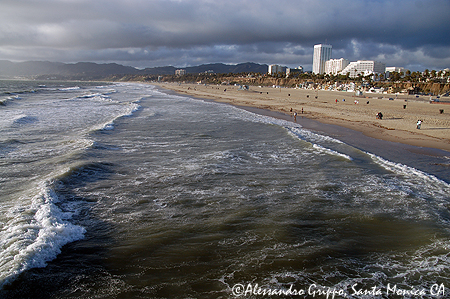
| ||||||||
| GEOL 1 - Introduction to PHYSICAL GEOLOGY | Last Updated • July 13, 2014 | |||||||
This class is a 3-units general education class that introduces students to the basic elements of geology. After an analysis of the foundations of the Theory of Plate Tectonics, we will quickly move on to a physical/chemical approach to minerals and rocks, and then to the analysis of the physical environments where these rocks form. The course will include a discussion on geological time and on the interpretation of sedimentary depositional environments. The class is fully accessible to anyone with a basic knowledge of physics, chemistry, and biology. Still, during such an intense, fast-paced session as this 6-weeks Winter course, you will need to pay constant attention to the materials discussed in class and dedicate a considerable amount of time to the class materials. The class pace is intensive (more than two hours a day, for four days a week, for six weeks), and you can not afford to be absent or miss work. Absences will not only affect your grade but also your overall grasp and understanding of the subject. As a student, you need to recognize that your college education is above all a matter of opening yourself up to new dimensions of knowledge and understanding. You need to realize that this subject, geology, is intrinsically interesting, I am here to illustrate and explain it to you, but geology does not need to be made more “interesting” by me. If you enrolled in this class you should be able to move beyond your individual interests and take advantage of the opportunity of having scientific materials illustrated to you.
This class is fully transferable to UC and CSU, but it might not satisfy GE requirements at some universities.
Syllabus: Click here for a .pdf copy of the Syllabus Class Hours: Monday, Tuesday, Wednesday, Thursday, 8:00 am - 10:05 am, HSS 254 Required Textbooks: Lecture: C. C. Plummer and D. H. Carlson, Physical Geology, 12th edition (2008), McGraw Hill. More recent editions of this book have been published. The difference between them is minimal, and the 12th edition will be fine.
Exams:
Exam dates are as follows: exam 2 - Thursday, July 17, 2014: study guide (available since July 13, 2014) exam 3 - Thursday, July 31, 2014: study guide (available since July 24, 2014) Please, refer to the class syllabus for further information and/or details.
 The principle of cross-cutting relationships, illustrated | GEOL 31 - OCEANOGRAPHY | Last Updated • June 18, 2014
| This class is a three-units, general education class. An introduction to the basic principles of geology and plate tectonics is followed by a discussion on the chemical and physical properties of water, a description of marine environments and a discussion on the biological aspects of the world's oceans.
This class has been canceled by SMC administration due to low enrollment. The college requires 18 students to be enrolled in a class for it to remain active. Geology 31 only had 13 students on June 17, 2014, and administration decided to cancel it.
 Shallow water waves in Santa Monica, California
| |||||